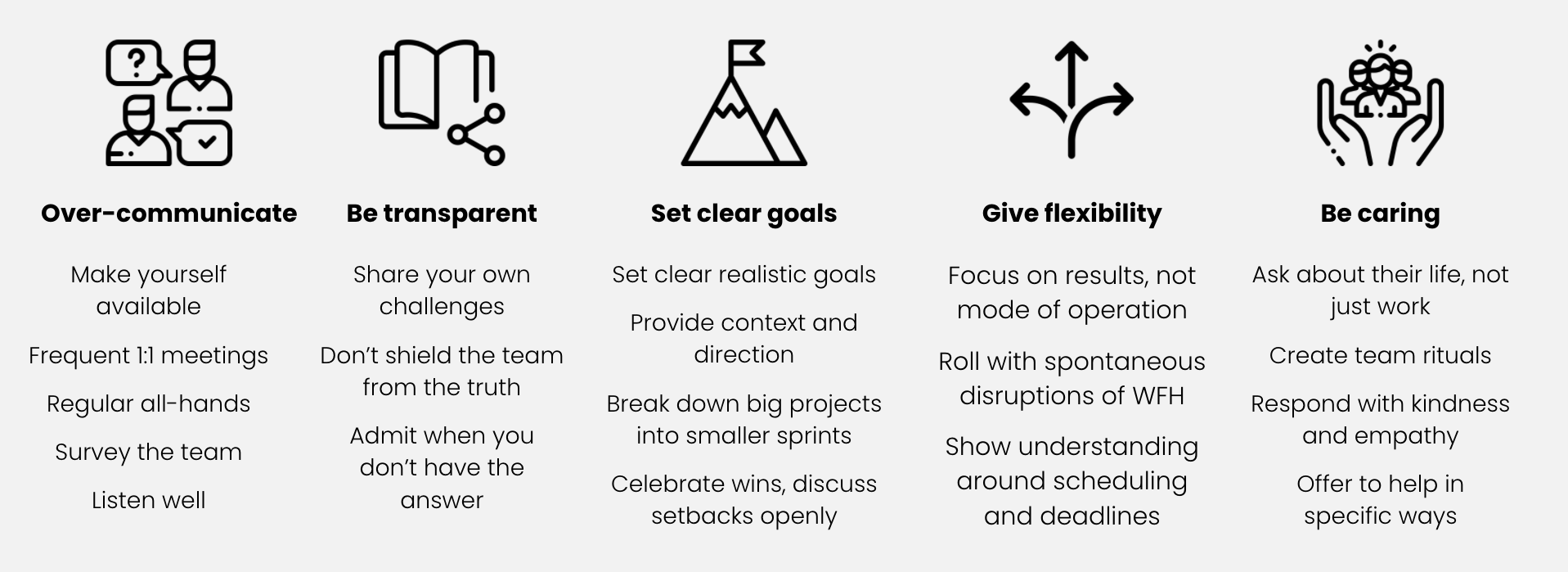- 24 July, 2024
As we come to the end of this very tumultuous year, we wanted to look back and examine how leaders and teams have responded to the wave of changes brought about by the pandemic.
Although 2020 is coming to a close, we continue to grapple with the impact of COVID-19 on our personal and professional lives for some time; and, as many experts argue, the world of work will never be the same.
One key change that will have a lasting impact on the way we work is the shift to working remotely. Some people have thrived and are energized by this new experience while others are frustrated and cannot wait to get back into the office; but on the whole, we have all had to learn to adapt and acquire new skills in the process.A comprehensive new study published by Workable supports this, concluding that “the remote world of work is here to stay, and there’s a clear willingness to adapt to that new world – at least in the adoption of new technology. But in order to really succeed in this new model of work, we need to loosen up on the traditional operational practices and start thinking about different solutions and practices so we continue to set ourselves for success. In short: the new world of work requires a new way of thinking”.
Good productivity, wavering engagement
Balderton Team Management Survey 2020
Read the results from our portfolio survey looking at how leaders have managed their teams differently this year. Download
In our survey, we focused on specific ways in which managers have kept their teams engaged and productive. Our initial hypothesis was that in early-stage companies where teams are typically led by less experienced managers, we will observe a decrease in productivity and engagement.
Most teams had not experienced a drop in productivity. Some actually saw positive gains from going remote.
A rather surprising finding was that most teams had not experienced a drop in productivity. Some have actually seen positive gains since going remote. This is in fact in line with the observation in the extensive study published by Slack which also found gains in productivity among other areas like work-life balance.
Parsing all the factors that separated thriving teams from those who struggled requires more rigorous investigation. What we observed based the results of our survey, other studies, and conversations with team leaders boiled down to these five directives:

It is hard to overstate the importance of effective communication. It is the linchpin that has held teams together while they were pulled apart and isolated. Though many managers cited the increase in the frequency of communications, the quality of communication is also paramount. It touches every other area outlined above and in our experience, it is the area most in need of improvement and up-skilling in early-stage teams.
It is hard to overstate the importance of effective communication.
On engagement, the results were more mixed. We found that engagement levels fluctuated but did not drop significantly in most of the teams surveyed. This is a primary area of concern for many teams as managers expect that the impact of the ongoing challenges and isolation is cumulative and we may see more difficulties with engagement in the coming months. This highlights the importance of advanced planning to keep employees engaged.
Through further conversations with leaders, we found that the companies that had made a considerable investment of time and resources in caring for their teams had seen tangible gains in engagement and morale. These initiatives included providing access to mental health resources, designing bespoke wellness programs, arranging training on specific topics like resilience and communications, as well as offering flexible working arrangements and company-wide commitment to supporting peers through buddy programs, ‘no-meeting’ hours, etc.
Looking ahead to 2021
Our broader key takeaway is that now more than ever, companies need to recognize that it is critical to pay close attention to the needs of your team and invest in the right tools, training, and people who can ensure employees are set up for success, and not just getting by in hopes of a return to the old ‘normal’.
My personal view is that these last few months have highlighted the vital role of the People function and building a great one is a critical area of focus for any company looking to develop a thriving team in the new world of work.










